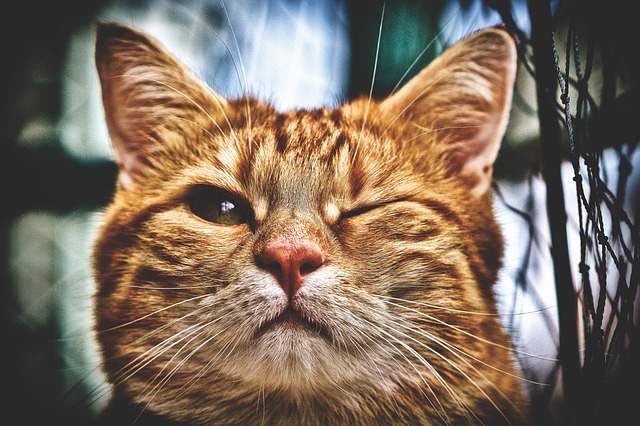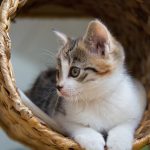Have you ever observed your cat seeming lethargic or noticed a decrease in their water intake, making you wonder if they might be dehydrated? Dehydration is a common issue in cats, especially when they are unwell. Both very young kittens and older cats are more susceptible to the effects of fluid loss. Recognizing the signs, understanding the causes, and knowing how to address and treat dehydration in cats is crucial for their well-being.
What Is Dehydration in Cats?
Dehydration occurs when a cat loses more fluids than they are taking in. This can be due to various reasons, such as illness, vomiting, or diarrhea. When a cat becomes dehydrated, there are often changes in electrolytes like sodium, calcium, and potassium. Maintaining proper hydration and electrolyte balance is vital for the normal functioning of a cat’s organs and tissues. Severe dehydration can even lead to fatal outcomes.
Thankfully, identifying dehydration in cats is relatively straightforward and can be effectively treated once the underlying cause is determined.
Signs of Dehydration in Cats and Kittens
The signs of dehydration can range from subtle to severe. Cats that are dehydrated often show a lack of interest in drinking and eating. Lethargy is a common symptom, and their usual activities might be noticeably reduced. Sunken eyes and, in severe cases, panting, weakness, or collapsing may occur.
Tests to Determine Dehydration:
- Gum Check: Gently lift the cat’s lip and touch their gums. Wet and slimy gums indicate normal hydration, while dry and tacky gums may suggest dehydration.
- Skin Pinch Test: Lift the skin over the cat’s shoulder blades and release. In well-hydrated cats, the skin should quickly snap back into place. Slower skin retraction may indicate dehydration.
Causes of Dehydration in Cats and Kittens
Dehydration in cats can stem from various causes, but fundamentally, it occurs when a cat loses fluids faster than they are replenishing them. Some common causes include:
- Reduced Food and Water Intake: Cats not eating or drinking adequately are prone to dehydration.
- Vomiting and Diarrhea: Conditions leading to rapid fluid loss.
- Underlying Diseases: Diabetes and renal disease can result in increased water loss.
- Fevers or Trauma: Illnesses or injuries can lead to dehydration.
- Environmental Factors: Hot weather and dry air can contribute over time.
The degree of dehydration varies based on the cause, with milder illnesses resulting in less severe dehydration.
Why Is Dehydration in Cats a Serious Issue?
Veterinarians treat dehydration seriously because water is essential for almost all physiological processes in a cat’s body. Inadequate fluid or electrolytes can lead to organ failure, accumulation of waste in the bloodstream, and critical conditions. Additionally, dehydrated cats generally feel unwell, affecting their normal eating and drinking behaviors, exacerbating the problem.
Certain cats, such as kittens, seniors, and those with pre-existing health conditions, are more sensitive to dehydration and can deteriorate rapidly if not addressed promptly. Cats with diabetes, hyperthyroidism, or inflammatory bowel disease require close monitoring for dehydration.
What to Do If Your Cat Is Dehydrated
If you suspect your cat is dehydrated, seek immediate veterinary attention. Assessing the severity of dehydration can be challenging, and a veterinarian is better equipped to determine both its extent and the underlying cause. Avoid attempting to force water on your cat or using a dropper, as this can lead to severe complications.
Offering your cat canned food, human-grade tuna, water, or Pedialyte is acceptable if you suspect dehydration, but if your cat doesn’t take them willingly, wait until you can reach the veterinary hospital.
Treatment for Dehydration in Cats
Veterinarians will conduct a thorough examination to identify the cause of dehydration and assess overall health. Laboratory tests, including blood and urine analyses, may be necessary to gauge the severity and underlying issues. Treatment varies, with mild cases often managed through subcutaneous fluids, while more severe cases might require hospitalization for intravenous fluids. The duration of treatment depends on the cat’s overall condition.
How to Prevent Dehydration in Cats
Taking proactive steps to prevent dehydration is essential. Regularly monitor your cat’s food and water intake, especially if they primarily consume dry food. Canned food, having higher fluid content, is often preferable, particularly for cats prone to dehydration. Cats should ideally drink approximately 4 ounces per 5 pounds of body weight.
If your cat prefers dry food, ensure a readily available, clean water source. Some cats prefer running water or may benefit from water fountains. Regularly cleaning the water bowl is crucial.
When in doubt about your cat’s hydration status, consult your veterinarian. Dehydration can escalate rapidly, so it’s better to err on the side of caution and seek professional advice. A well-hydrated cat is a healthier and happier cat.



